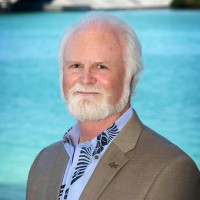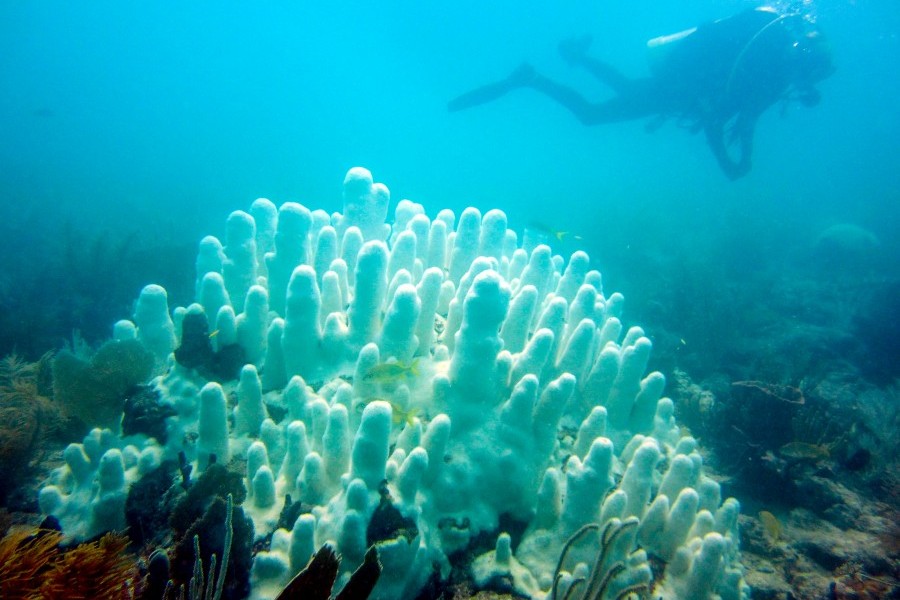Science, quality of life and climate change: Where did all the coral go?
By Dr. Michael P. Crosby, President and CEO of Mote Marine Laboratory
With the recent announcement that the U.S. will withdraw from the Paris Climate Accord, the nation and world are abuzz with discussions about climate change and the future. It is important that those engaged in this conversation value and utilize scientifically supported facts.
Mote Marine Laboratory, a completely independent nonprofit marine research institution and provider of objective scientific information, does not advocate for or against societal, economic or political decisions. Our results must be objective, without any bias toward a particular societal or political position. However, a significant component of our strategic priorities and mission is to translate and transfer the knowledge gained from our research to support conservation and sustainable use of our shared marine resources, while also providing for enhanced public literacy on the importance of healthy oceans for the quality of life of Floridians and all U.S. citizens. The U.S. withdrawal from the Paris Climate Accord is a societal, economic and political issue for which discussion is enhanced by an increased level of science-based ocean literacy amongst the public, policy makers and politicians alike.
Mote’s perspective is based in great part on our significant programs that study climate change impacts — i.e., increasing ocean water temperature and acidification — and develop science-based mitigation strategies for restoring marine ecosystems and helping them be more resilient to these impacts. In particular, we investigate how warming ocean temperatures and ocean acidification may affect the “rainforests of the sea,” coral reefs. Our longstanding Summerland Key campus in the Florida Keys recently opened Mote’s new Elizabeth Moore International Center for Coral Reef Research & Restoration (IC2R3) that includes the Alfred Goldstein Institute for Climate Change Studies.
We assess how warming water may affect the spread and virulence of coral diseases — a major threat to coral reefs. For instance, peer-reviewed research by a Mote scientist demonstrated that white pox disease is likelier to affect threatened elkhorn corals if waters warmed, and if the coral colonies were larger or more genetically susceptible. Our scientists are also determining the resistance and susceptibility of different genetic strains of coral to increasing water temperature, coral disease and ocean acidification. Results are intended to inform innovative technologies for coral restoration so that what is restored today will last 100 years and beyond despite an increasingly warm and acidic ocean. We have restored more than 20,000 corals to Florida’s reefs to date and aim for a million more.
A new peer-reviewed publication by our scientists on June 1, 2017, demonstrates the complex interaction between a coral disease called black band and acidified water. The paper suggests that low pH levels projected with ocean acidification, though threatening to multiple reef organisms, may have the surprising effect of slowing this coral disease’s progression under some conditions. Each year, Mote helps to document heat-driven coral bleaching in the Florida Keys through our citizen-science volunteer programs BleachWatch and C-OCEAN, and our scientists partner in a rigorous reef-monitoring program called the Florida Reef Resiliency Program.
Let’s get some simple scientific facts straight so we can focus on the somewhat qualitative question of whether climate change causes “harm” to the oceans. Climate change has occurred throughout the planet’s existence, before and during the existence of humans, and it will always occur as a natural part of the Earth’s evolution — this is fact. Anthropogenic (human) activities contribute to modulations of naturally occurring climate change — this is fact. Climate change is real and human activities contribute to it. The direct physico-chemical impacts to the world's oceans from climate change consist of primarily increasing water temperatures and decreasing pH (increasing ocean acidification). While sea level change is also directly linked to temperature change, our discussion here will focus on the question of “harm” to the ocean by increasing water temperature and acidification.
As a specific example to the question of “harm,” corals have evolved over millennia to exist within a range of water temperatures. In recent decades, because of climate change-induced increases in ocean temperature, there have been an increasing number of seasonal occurrences around the world when water temperatures have exceeded what corals can tolerate. This has resulted in widespread coral death. Climate change-induced ocean acidification is also beginning to impact the ability of many marine organisms to produce calcium carbonate. For bivalves, such as oysters, clams and scallops, calcium carbonate is vital to produce their shells. For corals, which comprise a very thin veneer of living coral polyp tissue that secretes an enormous calcium carbonate “rock” skeleton over hundreds of years, increased acidification means they lose their skeletons. Think of osteoporosis in human bones.
If you ask whether the U.S. should do everything it can to reduce the greenhouse gases that contribute to climate change, consider this: If corals go extinct, other marine habitat types such as macro-algae or algal-bacteria slime or sponges may replace them. It is not for science to decide that one ecosystem is “bad” and another is “good,” nor that by extension climate change impacts that force corals into extinction are “harmful.” What is certain is that if coral reefs go extinct, we lose our “rainforests of the sea,” we lose an enormous level of marine biodiversity, and the State of Florida will lose over 70,000 jobs and the foundation of a $6 billion annual economy. Science can inform society of the objective facts surrounding impacts to our oceans from climate change, but society must decide how this “harm” will be considered in the diverse balance of desires for “quality of life” and the economic vitality of our nation.

